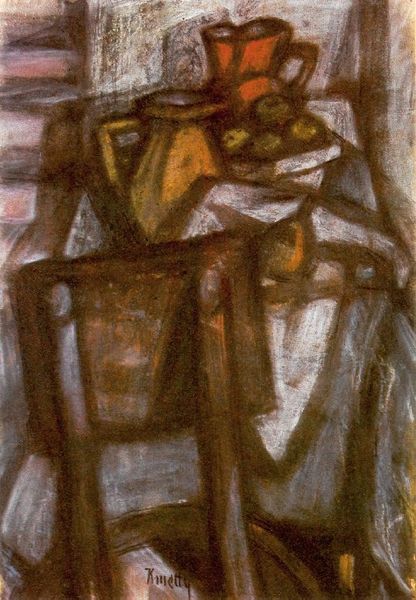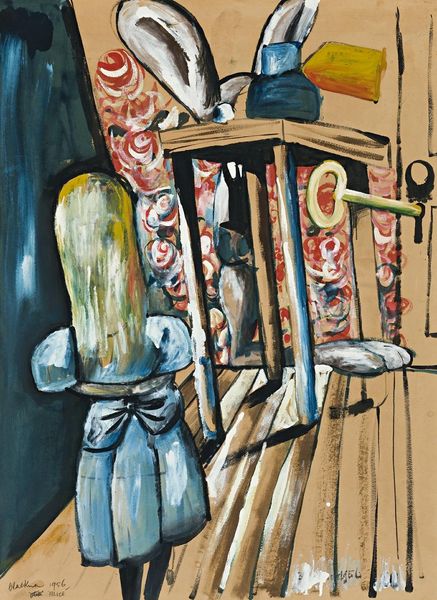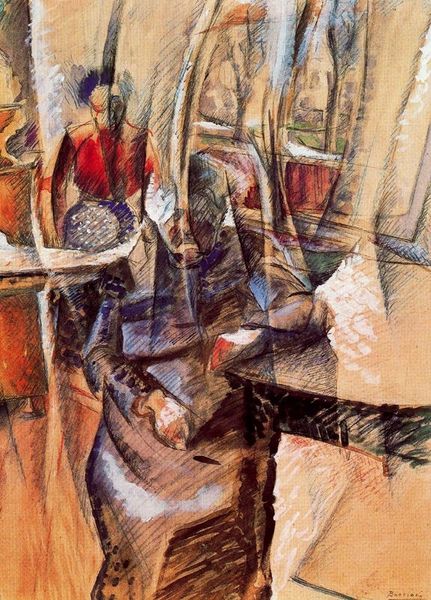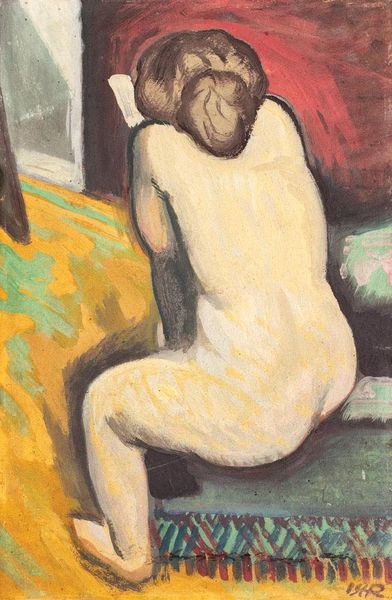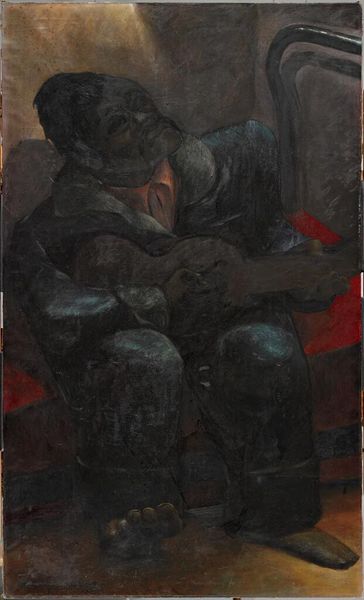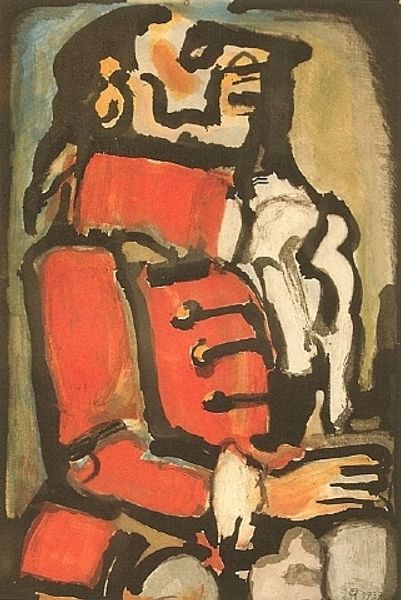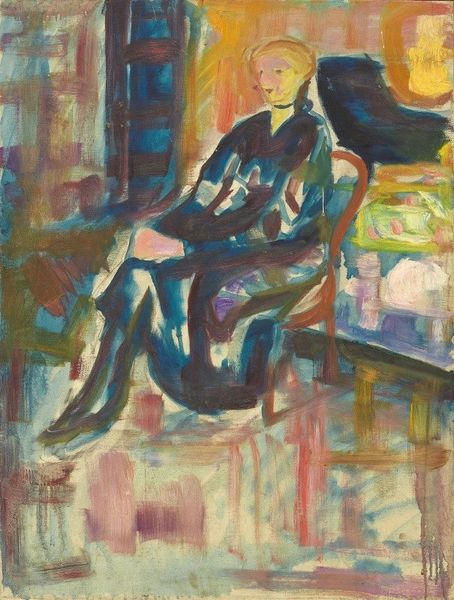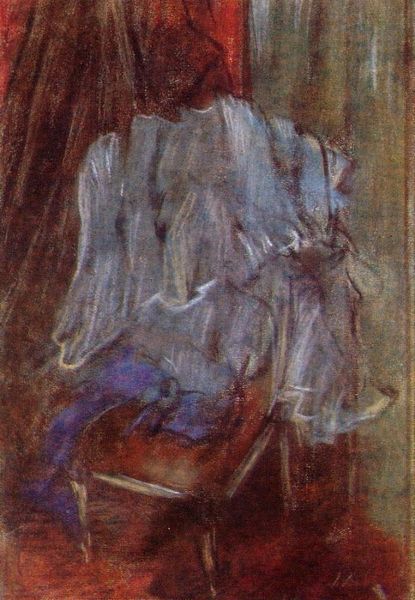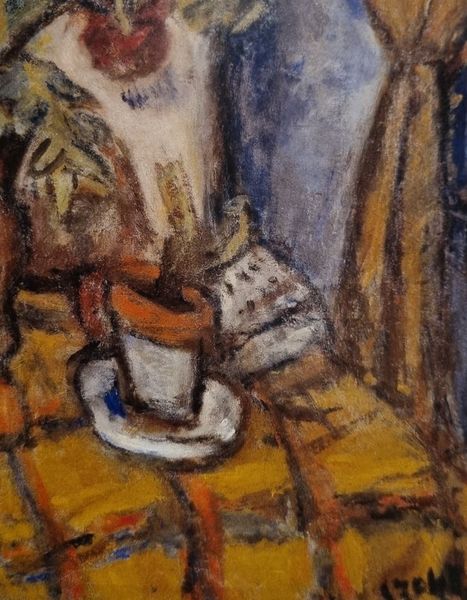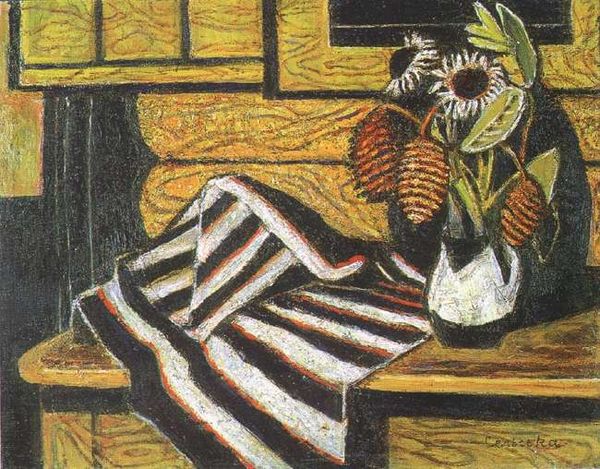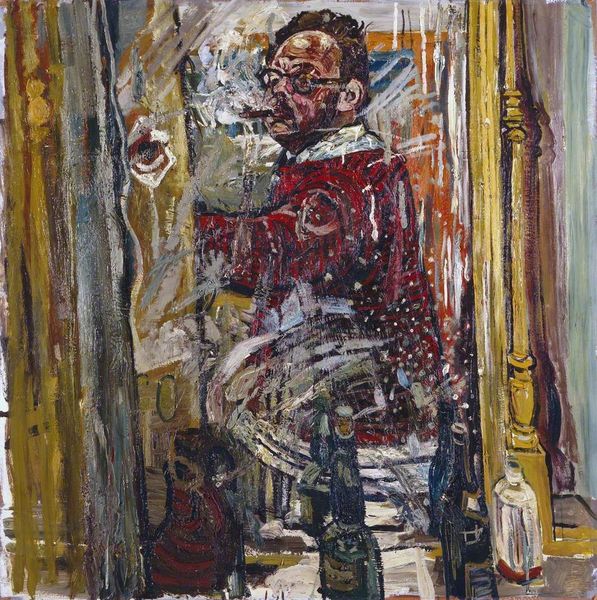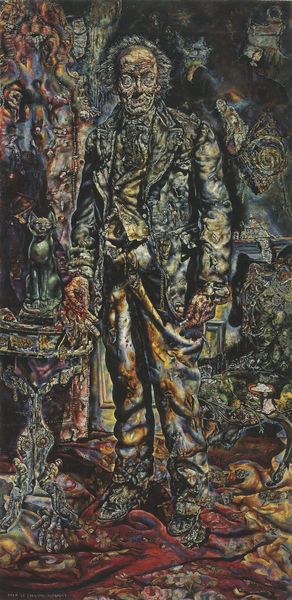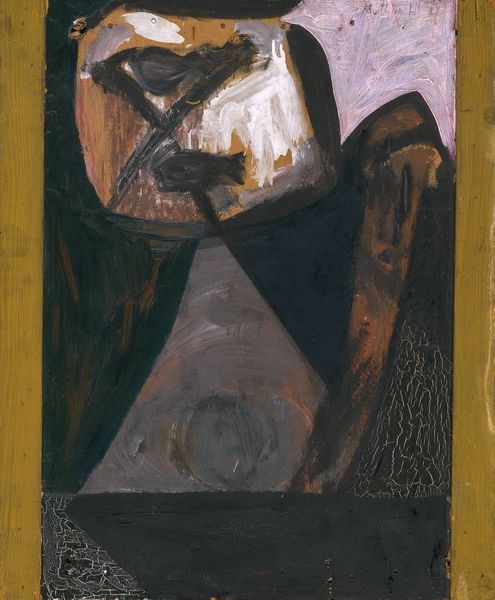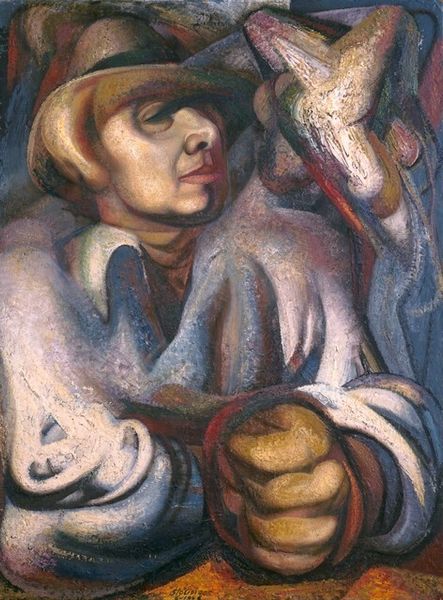
painting, oil-paint
#
portrait
#
abstract expressionism
#
abstract painting
#
painting
#
oil-paint
#
figuration
#
acrylic on canvas
#
painting art
#
modernism
Copyright: Mark Rothko,Fair Use
Curator: This is an oil-paint on canvas "Untitled" by Mark Rothko, painted in 1942. At first glance, what catches your eye? Editor: Honestly? It feels like a fever dream. Those blurred figures look like they’re melting into the canvas, a swirl of blue and red and…unease. I feel dizzy, I suppose it makes me feel what Rothko was feeling during WWII. Curator: It’s interesting you pick up on unease so viscerally. Rothko’s artistic evolution during that period was deeply intertwined with the anxieties of the time, he, like many others were deeply shaken by the impact of World War II, by social issues and their emotional impact. The biomorphic shapes and figures here move away from traditional figuration. Editor: Right. There’s a tension there, between wanting to depict the human form and pulling back into something more primal, more subconscious. Like the artist is wrestling with seeing things as they are, or maybe he’s afraid to really see at all? Curator: Indeed, by the early to mid-1940s, Rothko shifted dramatically away from his earlier figurative style. Many view the turn towards abstraction as a response to those times, to the widespread atrocities and social unrest of the era. I am not completely sure the "figures" depicted in this one could be named as people in their full form. Editor: It is funny; you can almost see classical busts being devoured by… modern anguish, somehow? That combination of what once was and the painful now; does it resonate, maybe? It seems to show things end. Curator: Precisely! One interpretation places him, alongside other Abstract Expressionists, within a historical narrative concerned with humankind and its most fundamental relations to each other, to the human nature of these relationships. Editor: Yeah. Well, that hits hard now. I find it hauntingly hopeful at the same time. It might sound silly, but art’s got to offer a tiny flicker of light, or it just becomes unbearable, doesn't it? It really makes me wonder about history in a broader, non-traditional, but insightful way, a history with feeling I might say. Curator: I couldn’t agree more. Seeing art as cultural history reframes its function as both a sign and as a social actor and contributes something important to our own humanity. It has been quite revealing. Editor: Thanks! Let’s go find more ghosts.
Comments
No comments
Be the first to comment and join the conversation on the ultimate creative platform.
